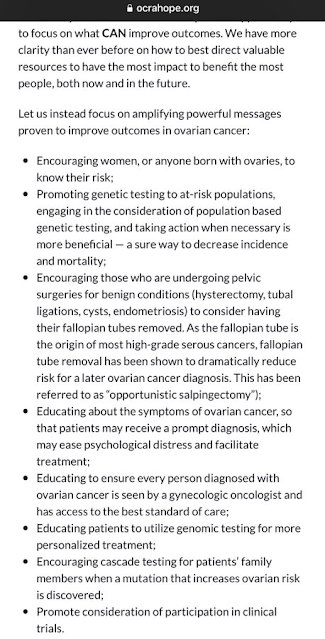We were pleased to have Roberta Codemo (@roberta_codemo), Patient and Financial Navigator and Debra Rundles (@RundlesDe), Oncology Nurse Navigator join the #gyncsm community for tonight's chat about patient navigation.
You may find our transcript here and analytics here. Resources shared during the chat may be found at the end of the post. Below is a sampling of the responses to our topic questions.
T1: What is a patient navigator? Are there different types? Do all patients have nurse navigators?
- There are lay (non-clinical) navigators and nurse navigators. The primary distinction between the two are that nurse navigators hold a RN license.
- from@OncNav ONNs (Oncology Nurse Navigators) patients “navigate” the healthcare system and help them get timely care and helps reduce disparities
- "Navigation is the process of helping patients overcome healthcare system barriers and providing them with the timely access to quality medical and psychosocial care from before cancer diagnosis through all phases of their cancer experience"
- UCAN serves as patient navigators. We find sevices that are available beyond what we are able to do for patients. We also bring in nurses and doctors to help give advice during our support sessions to help navigate as well.
- Patient navigators work as part of the health care team and help patients overcome barriers to care and help them understand the health care system. Barriers to care include transportation, child care, food insecurity, and housing
- Oncology Nurse Navigator: A professional RN with oncology-specific clinical knowledge who offers individual assistance to patients, families, and caregivers to help overcome healthcare system barriers. throughout all phases of the cancer continum
- Oncology Patient Navigator: A professional who provides individualized assistance to patients and families affected by cancer to improve access to healthcare services. A patient navigator may work within the healthcare system
- Oncology Social Work Navigator: A professional social worker with a master’s degree in social work and a clinical license (or equivalent as defined by state laws) with oncology-specific and clinical psychosocial knowledge who offers individual assistance to patients
- Yes navigators support caregivers. Navigators rely on the patient to discuss who their support system and team will be and receive direction on what role each caregiver has in their treatment plan.
- Patient navigators work with patients and their families to ensure that patients get the care that they need from diagnosis through survivorship.
- Starting at the time of diagnosis, navigators will meet with patients and do an assessment to understand what a patient's needs are be it housing, transportation, child care or food insecurities.
- Once a patient's needs have been assessed, navigators will refer patients to resources so they can get the help that they need and ensure that patients will be able to move forward with their care plan.
- Navigators can help from initial diagnosis through survivorship: The Role of the Nurse Navigator in Women's Health jons-online.com/issues/2018/au from @oncnav
- Academy of Oncology Nurse & Patient Navigators (@OncNav) has a certification program for nurse navigators.
- In addition to formal patient navigator certifications, there is a cool certification program via @socialhealthnet Patient Leader Certification Program https://socialhealthnetwork.com/resources/5-reasons-to-consider-the-health-union-patient-leader-certification-program
- I have Certificates of Completion in Patient Navigation and Financial Navigation through George Washington University. There are no formal training programs.
- Yes. Currently there are Certification ONN-CG (Oncology Nurse Navigator Certified Generalist) and OPN-CG (Oncology Patient Navigator- Certified Generalist) Certifications occur via AONN.
- Most major cancer centers have navigators on staff, though not all. There is a huge demand for navigators. You can also go to Advo Connectionand the National Association of Healthcare Advocacy websites to find private navigators.
- Based on the conversation with those diagnosed with Uterine cancer we hear that they were offered no navigation services. I wasn't either back in 2009.
- Since patient navigation is still emerging, I would imagine anywhere online patients gather - like through cancer centers or sites like @smart_patients @InspireIsHealth- is one of the best places to get referrals for navigators if your cancer center does not offer.
- Usually through the organization but the initial contact can be through the medical provider.
- services can be found at physician offices, hospitals, and some resource organizations. Sometimes patients and medical professionals are not aware of the value of navigation. Resource: CONQUER magazine"










